Description
ABSTRACT
Section 34 of the Arbitration and Conciliation Act: Issues Arising
Joseph Mbadugha*
Arbitration is not an extension of courts’ proceedings but rather an alternative to adjudication. In pursuit of this view, section 34 of the Arbitration and Conciliation Act was enacted to restrict courts’ involvement in arbitration. This article examines the issues arising from section 34 of the Act; its constitutionality and impact on anti – arbitration injunction. The article contends that: judicial powers vested in the courts by section 6 of the 1999 Constitution of the Federal Republic of Nigeria is activated upon parties referring matters to, or commencing actions in, courts given that courts do not initiate or take up matters by themselves; selecting arbitration as a means of resolving a particular dispute amounts to abandonment of the right of litigation in respect thereto and waiver of the constitutional right of resort to the court in respect thereof including all the rights to courts’ intervention in the arbitration except to the extent provided by the governing Act. The article also argues that existence of arbitration agreement suspends, temporarily, the jurisdiction of courts over the same dispute and in consequence, section 34 of the Act is constitutional; since inherent powers flow from jurisdiction and parties’ choice of arbitration having suspended courts’ jurisdiction in respect thereto, inherent powers of the courts under the 1999 Constitution, as a result, does not extend to restraining arbitration or further conduct of arbitral proceedings under the Act.
INTRODUCTION
Arbitration, as an alternative mechanism of dispute resolution, is the process by which a dispute between two or more parties as to their mutual legal rights and liabilities is, pursuant to their agreement, referred to and determined judicially by one or more persons instead of by a court of law.2
That arbitrators determine matters judicially raises the question whether arbitrators exercise judicial powers. In Nigeria, judicial powers are vested in the courts by the 1999 Constitution as amended. The judicial powers extend to all matters between persons, or between government or authority and to any person in Nigeria, and to all actions and proceedings relating thereto, for the determination of any question as to the civil rights and obligations of that person.3 However, judicial powers are exercisable in matters within the jurisdiction of the court.4 Judicial power is not coterminous with jurisdiction though the former embraces the latter but they are inter changeable.5
The existence of an arbitration agreement suspends, temporarily, the court’s jurisdiction over the subject matter contemplated by the agreement. A precursor to arbitration is the parties’ agreement. Where there is no agreement between parties as to how a dispute arising from their transaction of a commercial nature would be settled, such a dispute would be settled by the court.
* Principal, McCarthy Mbadugha & Co., Lagos. Visiting Professor of International Arbitration, Palacky University, Olomouc, Czech Republic. Former Visiting Professor, Nicholaus Copernicus University, Torun Poland and Vilnius University, Vilnius, Lithuania
- CAP A18 Laws of the Federation of Nigeria, 2004
- Mbadugha J. N. M., Principles and Practice of Commercial Arbitration (Lagos: University of Lagos Press 2015) 1
- Constitution of the Federal Republic of Nigeria, 1999 (as amended), s. 6(6)(b)
- Odofin v Agu (1992) 3 NWLR (Pt 229) 350at 369 per Karibi Whyte J.S.C.; Anakwe v C. O. P (1995) 6 NWLR (Pt 403) 564 at 574 paras C D and at 581 paras G – H
- Tukur v Govt. of Gongola State (1989) 4 NWLR (Pt 117) 517 at 553 para G

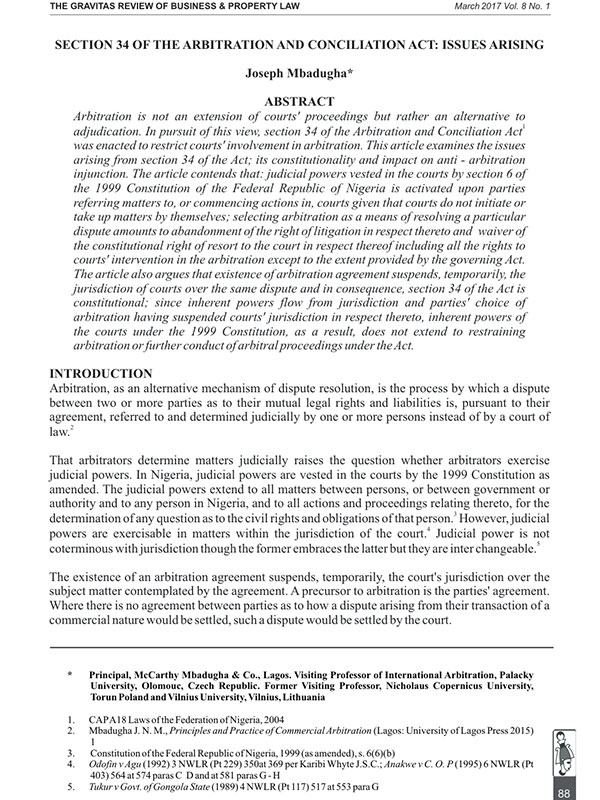
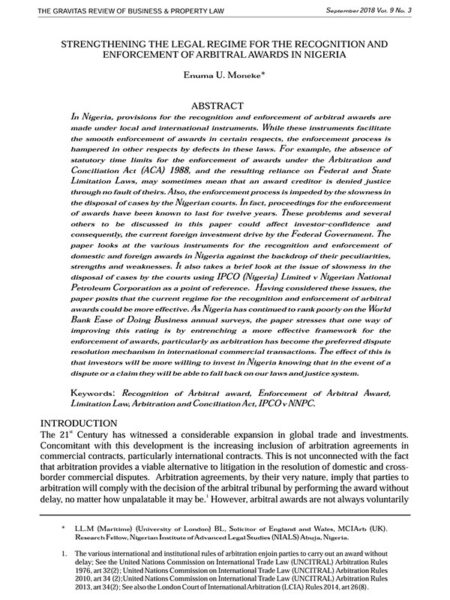
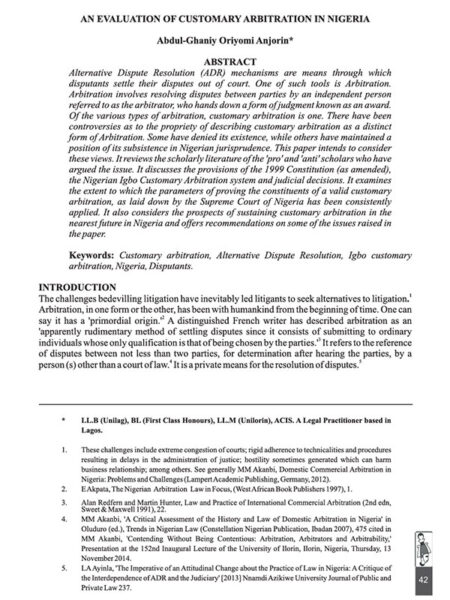
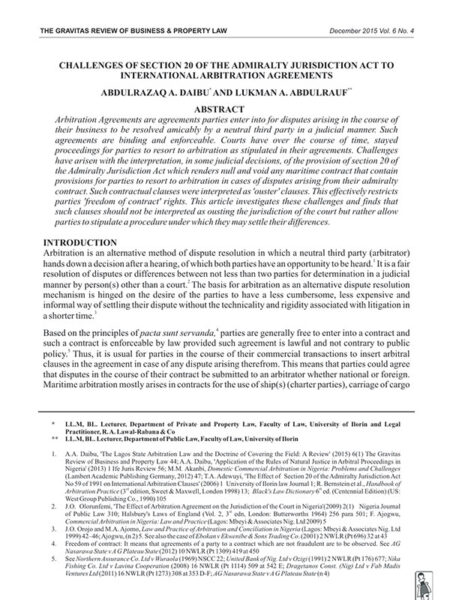
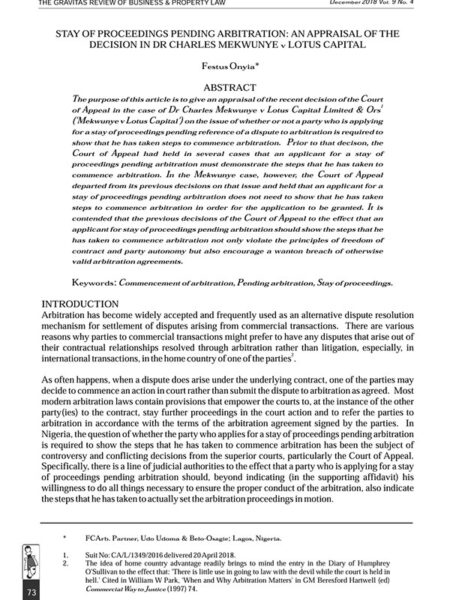


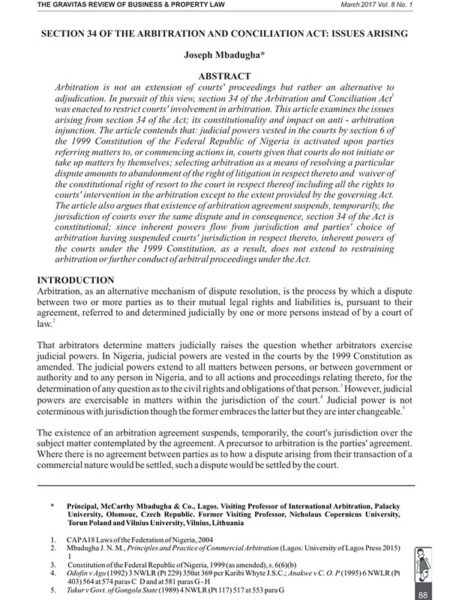
Reviews
There are no reviews yet.